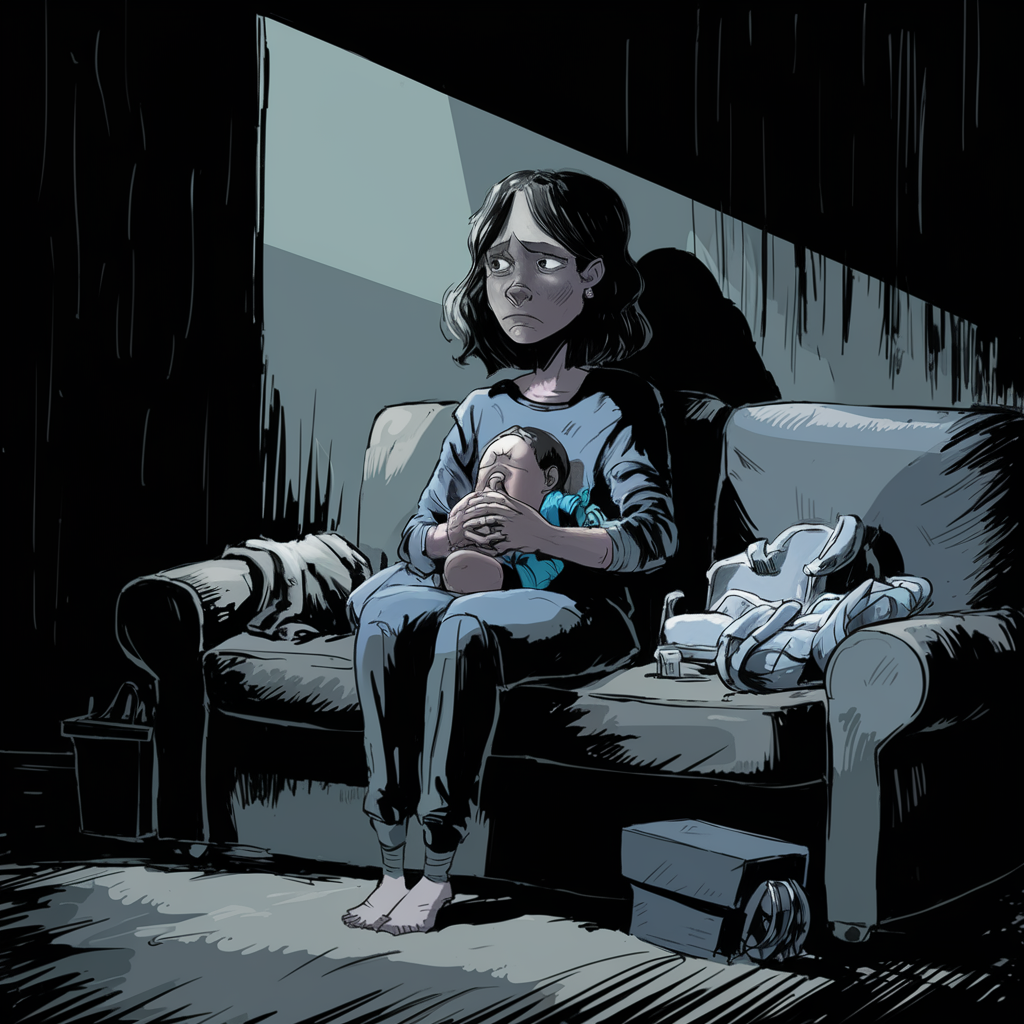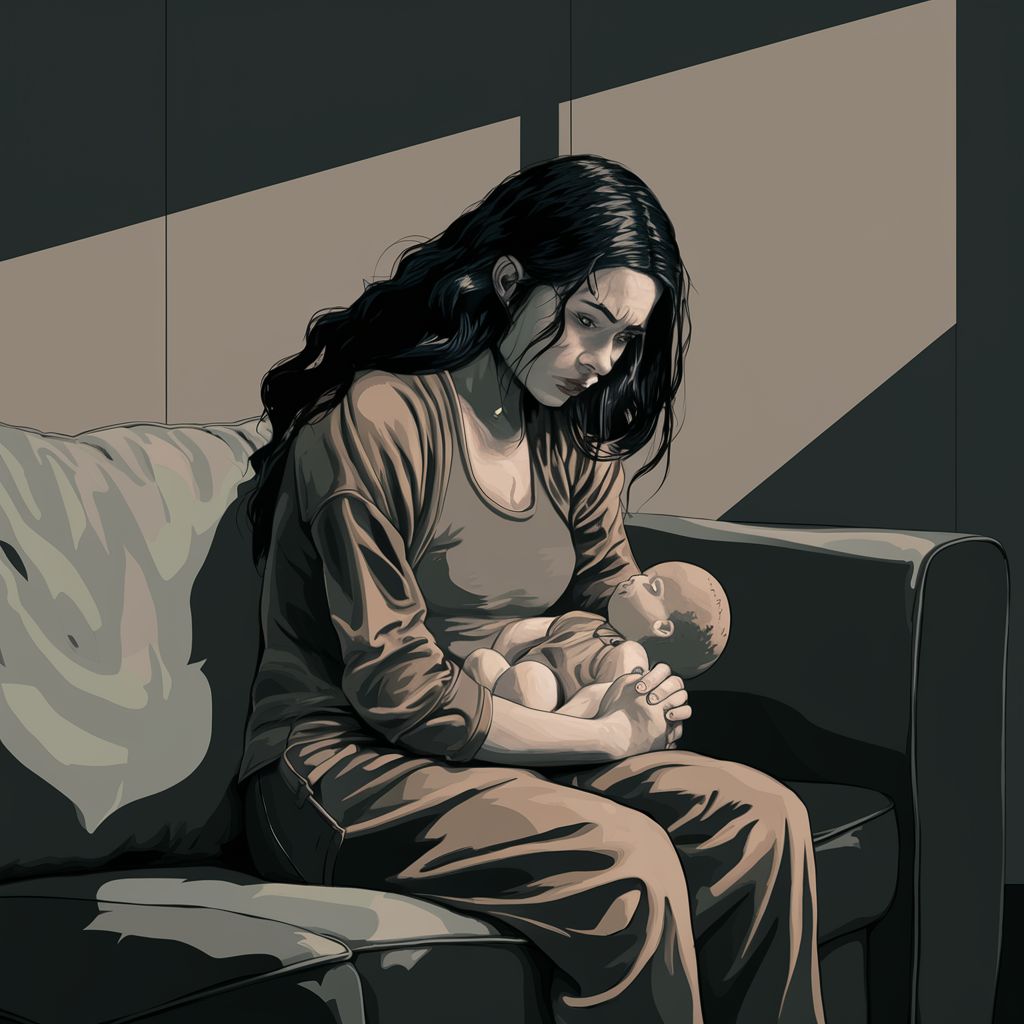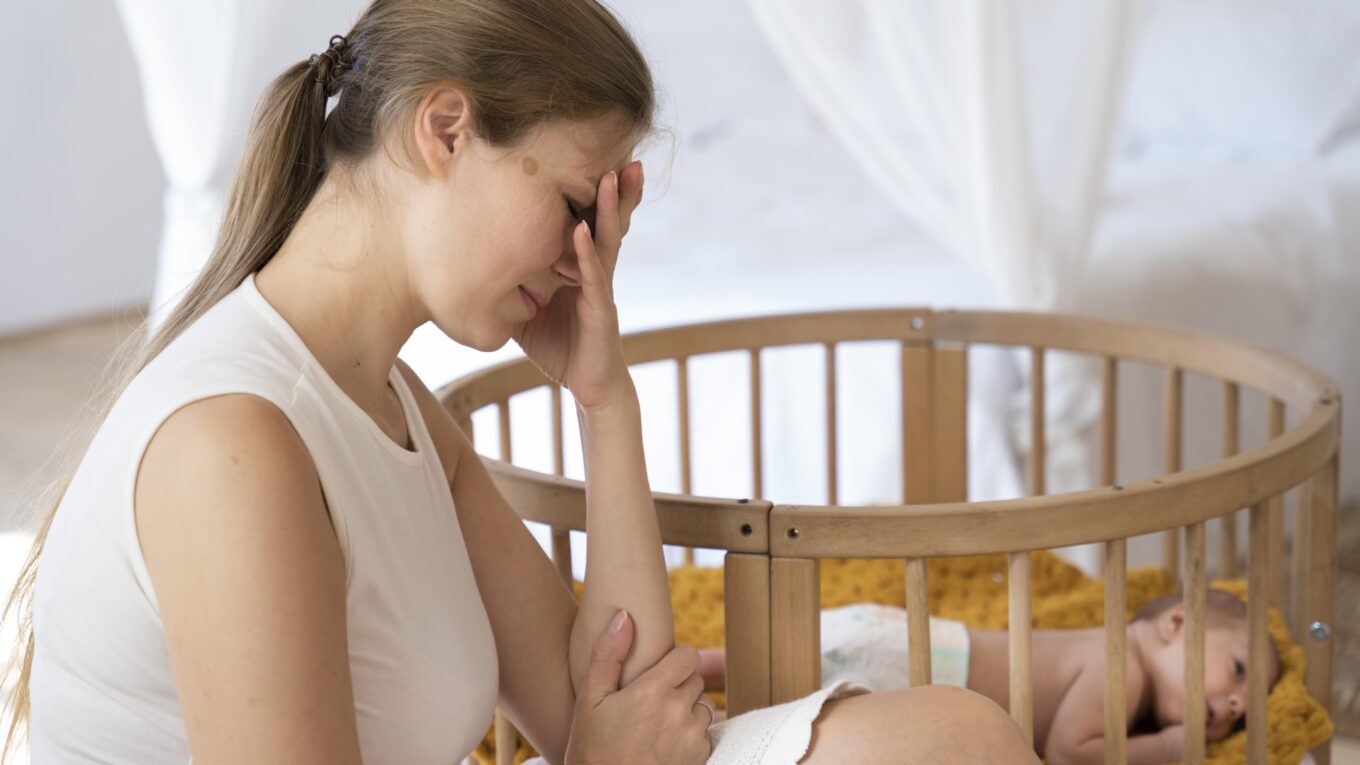Postpartum Depression and Suicidal Thoughts: Navigating Maternal Mental Health
Postpartum Depression and Suicidal Thoughts: Navigating Maternal Mental Health
Read Disclaimer
Explore the complexities of postpartum depression and suicidal thoughts, learn about symptoms, treatment options, and support strategies for navigating maternal mental health.
Introduction:
The period following childbirth, known as the postpartum period, is often portrayed as a time of joy and bonding between mother and baby. However, for many women, this time can be marked by overwhelming feelings of sadness, anxiety, and despair. Postpartum depression (PPD) is a common and serious mental health condition that affects millions of women worldwide. In severe cases, it can lead to suicidal thoughts and behaviors, posing significant risks to both mother and child. This article delves into the complexities of postpartum depression, its relationship with suicidal ideation, and strategies for navigating maternal mental health.
Understanding Postpartum Depression:
Postpartum depression is a mood disorder characterized by persistent feelings of sadness, hopelessness, and worthlessness that occur after childbirth. It affects approximately 1 in 7 women, making it one of the most common complications of childbirth. While the exact causes of PPD are not fully understood, a combination of biological, psychological, and environmental factors may contribute to its development.

Biological factors, such as hormonal fluctuations and changes in brain chemistry, play a significant role in predisposing some women to postpartum depression. Additionally, women with a history of depression, anxiety, or other mental health disorders are at a higher risk of developing PPD. Furthermore, social and environmental factors, including lack of support, financial stress, and relationship difficulties, can exacerbate feelings of distress during the postpartum period.
Symptoms of postpartum depression
Symptoms of postpartum depression may vary in severity but commonly include:
– Persistent sadness or crying
– Feelings of worthlessness or guilt
– Loss of interest in activities once enjoyed
– Changes in appetite or sleep patterns
– Fatigue or loss of energy
– Difficulty bonding with the baby
– Thoughts of harming oneself or the baby
The Link Between Postpartum Depression and Suicidal Thoughts:
While not all women with postpartum depression experience suicidal thoughts, the risk is significantly elevated compared to the general population. Research suggests that up to 5% of women with PPD may experience suicidal ideation, and approximately 1 in 1,000 women will die by suicide during the postpartum period.

Several factors contribute to the heightened risk of suicidal thoughts among women with postpartum depression. Feelings of hopelessness, worthlessness, and overwhelming guilt can distort one’s perception of reality and increase the desire to escape emotional pain through suicide. Moreover, the stigma surrounding maternal mental health issues may prevent women from seeking help or disclosing their struggles, further exacerbating feelings of isolation and despair.
For many women, the experience of postpartum depression and suicidal thoughts is compounded by the pressure to fulfill societal expectations of motherhood. The pervasive myth of the “perfect mother” can create unrealistic standards and amplify feelings of inadequacy and failure in women struggling with mental health challenges.
Navigating Maternal Mental Health:
Addressing postpartum depression and suicidal thoughts requires a multifaceted approach that prioritizes early detection, intervention, and support. Healthcare providers play a crucial role in screening for PPD during prenatal and postnatal visits and providing access to appropriate treatment and resources.
Psychotherapy, particularly cognitive-behavioral therapy (CBT), is often recommended as a first-line treatment for postpartum depression. CBT helps women identify and challenge negative thought patterns, develop coping strategies, and improve problem-solving skills. In more severe cases, medication such as antidepressants may be prescribed under the guidance of a healthcare professional.
In addition to professional treatment, peer support groups and online communities can provide valuable emotional support and validation for women experiencing postpartum depression. Connecting with other mothers who have shared similar experiences can reduce feelings of isolation and offer practical advice and encouragement.

It is crucial for partners, family members, and friends to provide unconditional support and understanding to women struggling with postpartum depression. Encouraging open communication, assisting with household tasks and childcare responsibilities, and offering to accompany them to medical appointments can alleviate some of the burdens associated with PPD.
Furthermore, promoting awareness and destigmatizing discussions around maternal mental health are essential in encouraging women to seek help and access the support they need. Education campaigns, public health initiatives, and advocacy efforts can challenge misconceptions and foster a culture of empathy and support for mothers experiencing postpartum depression.
Conclusion:
In conclusion, postpartum depression and suicidal thoughts represent significant challenges to maternal mental health, necessitating a holistic approach to detection, intervention, and support. Recognizing the complex interplay of biological, psychological, and social factors underlying postpartum depression is essential in providing effective care for women during the postpartum period.
Addressing postpartum depression requires a multifaceted approach that includes screening, psychotherapy, medication, peer support, and education. Healthcare providers, partners, family members, and communities all play vital roles in supporting women experiencing postpartum depression and suicidal thoughts.
By fostering awareness, reducing stigma, and promoting open dialogue about maternal mental health, we can create environments where women feel empowered to seek help and access the support they need. Through collective efforts, we can ensure that every mother receives the care, understanding, and compassion she deserves as she navigates the challenges of postpartum depression and emerges stronger for herself and her family.
Frequently Asked Questions (FAQs) with Answers:
1. What is postpartum depression?
– Postpartum depression is a mood disorder characterized by persistent feelings of sadness, anxiety, and despair that occur after childbirth.
2. How common is postpartum depression?
– Postpartum depression affects approximately 1 in 7 women, making it one of the most common complications of childbirth.
3. What are the symptoms of postpartum depression?
– Symptoms may include persistent sadness, loss of interest in activities, changes in appetite or sleep patterns, difficulty bonding with the baby, and thoughts of harming oneself or the baby.
4. What causes postpartum depression?
– The exact causes of postpartum depression are not fully understood but may involve hormonal fluctuations, genetic predisposition, psychological factors, and environmental stressors.
5. How is postpartum depression treated?
– Treatment for postpartum depression may include psychotherapy, medication, peer support, and lifestyle modifications.
6. What is the link between postpartum depression and suicidal thoughts?
– Women with postpartum depression are at an elevated risk of experiencing suicidal ideation due to feelings of hopelessness, worthlessness, and overwhelming guilt.
7. How can postpartum depression be detected and diagnosed?
– Postpartum depression can be detected through screening tools administered by healthcare providers during prenatal and postnatal visits.
8. Can postpartum depression occur in fathers/partners?
– While less common, postpartum depression can also affect fathers/partners, particularly those experiencing significant stress or life changes.
9. What should I do if I think I or someone I know has postpartum depression?
– It is essential to seek help from a healthcare provider or mental health professional who can provide a proper diagnosis and recommend appropriate treatment.
10. What role do hormones play in postpartum depression?
– Hormonal fluctuations during and after childbirth can contribute to the development of postpartum depression, although the exact mechanisms are not fully understood.
11. Can postpartum depression affect bonding with the baby?
– Yes, postpartum depression can interfere with bonding between mother and baby due to symptoms such as lack of interest, irritability, and difficulty connecting emotionally.
12. Are there any risk factors for postpartum depression?
– Risk factors for postpartum depression include a history of depression or anxiety, hormonal changes, lack of social support, and stressful life events.
13. Is postpartum depression preventable?
– While postpartum depression cannot always be prevented, maintaining a healthy lifestyle, seeking social support, and receiving prenatal care can reduce the risk.
14. Can postpartum depression affect the baby’s development?
– Postpartum depression can impact the baby’s development through disrupted caregiving and interactions, although early intervention and support can mitigate these effects.
15. How long does postpartum depression last?
– The duration of postpartum depression varies for each woman, with some experiencing symptoms for a few weeks to several months. Early detection and treatment can help shorten the duration of symptoms.

Your point of view caught my eye and was very interesting. Thanks. I have a question for you.
Your article helped me a lot, is there any more related content? Thanks!
Thanks for sharing. I read many of your blog posts, cool, your blog is very good.
Your point of view caught my eye and was very interesting. Thanks. I have a question for you.
Can you be more specific about the content of your article? After reading it, I still have some doubts. Hope you can help me.
Your article helped me a lot, is there any more related content? Thanks!
Thanks for sharing. I read many of your blog posts, cool, your blog is very good.
Can you be more specific about the content of your article? After reading it, I still have some doubts. Hope you can help me.
Thanks for sharing. I read many of your blog posts, cool, your blog is very good.
Thanks for sharing. I read many of your blog posts, cool, your blog is very good.